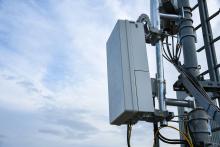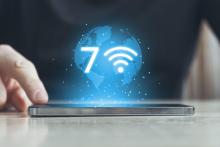The brass at Verizon Wireless have got to be pleased with where things are going these days. Of late, the mobile giant has had some big press releases and rollouts, and there's no doubt that different camps in several markets are taking note. If the only criticism that Big V faces this week is that CEO Ivan Seidenberg's keynote at CES was boring, the company's strategists must be hitting on all cylinders. But despite Verizon's immediate huzzahs, recent goings on in the mobile space have also generated a variety of questions to be pondered as this fast-evolving sector revs forward.
That smartphones have proven to be a disruptive technology is old news. But the sheer craziness of the smartphone market is still hard to believe at times. We've all gotten comfortable with the running AT&T versus Verizon smack-down, while other competitors duke it out on the margin. We've become acclimated to the equations that AT&T = iPhone and Verizon = Droid. We're mostly numb to speed and performance claims, and have willingly accepted that the truth behind these metrics and the marketing departments that spew them don't necessarily frequent the same clubs. But just when we've developed a working awareness of the mobile market, the winds are again shifting. Big time.
Back to Verizon Wireless. In its column, we now place the iPad, the iPhone, and an expanding Android lineup that includes my beloved Droid handsets and spiffy new tablets. Verizon wins the first round of real-world, it's-finally-here 4G. I count myself among those who say Verizon Wireless has the better network these days, and unlike AT&T, Verizon will offer unlimited data plans to its new iPhone base. I do tend to like AT&T's commercials better, and I still don't know what Verizon's slogan, "Rule the air," even means. Schmaltzy advertising aside, right now it seems that Verizon can do no wrong.
But on to the collateral effects of Verizon's current successes and the explosive nature of the mobile market as a whole. Now that Verizon is rocking the iPhone and iPad, what becomes of the company's relationship with the Android community? Sure, right now a fresh generation of Android-based tablets and phones are coming out, but the new Verizon-Apple partnership will simply have to impact on all things Android. And, yes, Verizon currently has the network to beat, but how will it stand up to the millions of expected converts that come with the iDevices? How long before those of us with Verizon Wireless unlimited data plans get that unwelcome letter with our monthly statement, explaining a new tiered plan that ends the days of bottomless data?
Zooming out, there are other questions. Looking at a broader landscape, we know from past press that the iPad's arrival put a real hurting on the sale of laptops. It stands to reason that laptop sales will continue to recede if the tablet model continues to gain favor as users settle on one go-everywhere device. It may be beyond the foreseeable horizon, but I have to imagine the likes of Dell and Acer eventually contemplating how to deal with far fewer laptops leaving the factories.








